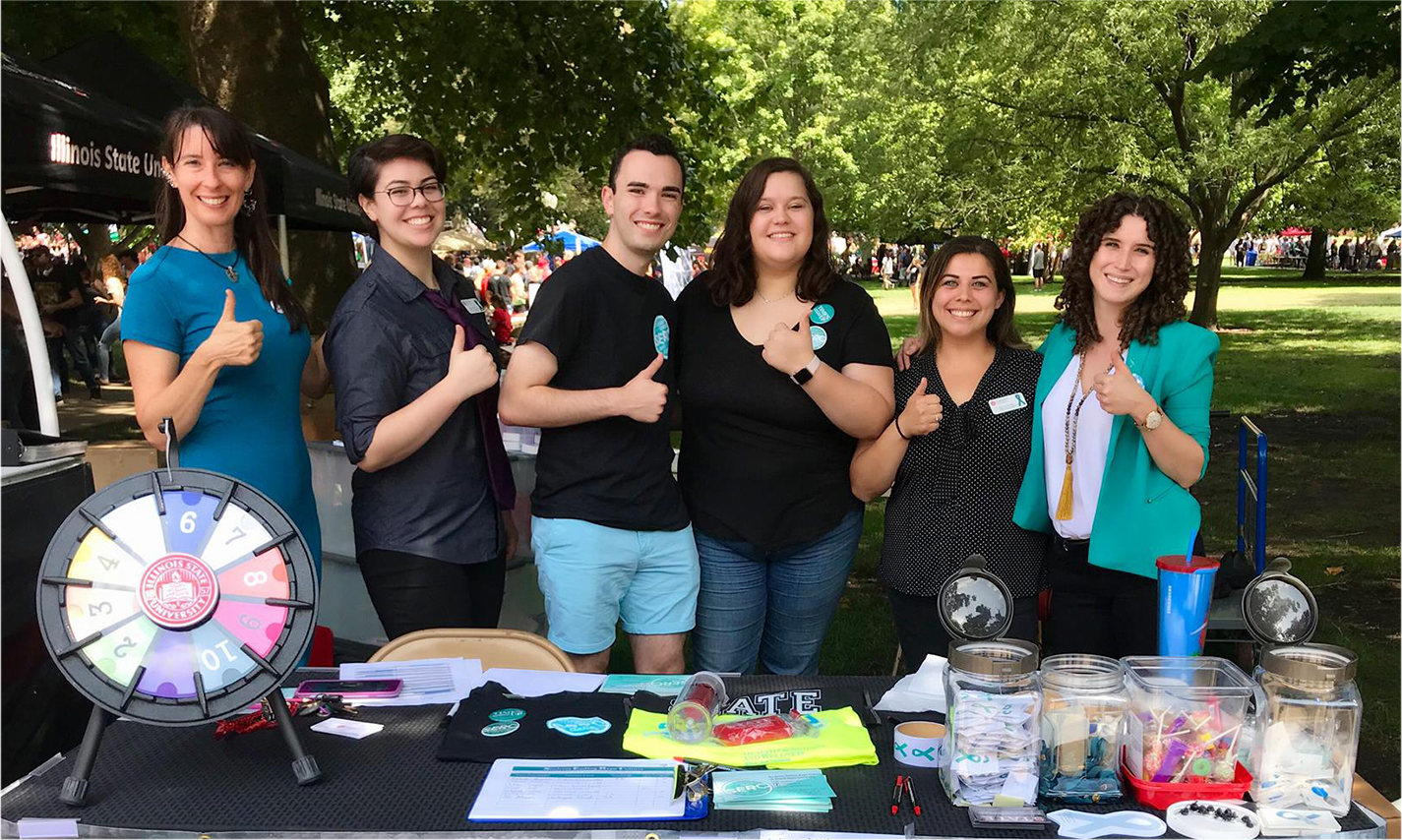For more than a year, the dedicated group Students Ending Rape Culture (SERC) at Illinois State University has worked to let survivors know they are not alone.
“The idea that propels our work is creating spaces where survivors can feel safe to freely and authentically express themselves and share their stories,” said junior biochemistry major Brendan Wall, who was one of the founders of SERC, along with alumni Morgan Snead and Andrew Jacobs. “Empowering survivors is key to our mission.”
SERC also works to educate the campus community about sexual violence, and bring visibility to the presence of rape culture. Rape culture can be defined as the normalizing or dismissing forms of aggression, which can come from something as simple as a “harmless” joke or saying (Wall notes “boys will be boys” is one often-used example) to something as to blatant as silencing rape victims.
 “Sexual assault has been a taboo topic. We don’t talk about it,” said Wall, a junior from Bloomington who is also a survivor. “But in silence we are trading away our voice to keep others comfortable.”
“Sexual assault has been a taboo topic. We don’t talk about it,” said Wall, a junior from Bloomington who is also a survivor. “But in silence we are trading away our voice to keep others comfortable.”
SERC engages in educational workshops throughout the school year, and will be active in events to honor Sexual Assault Awareness Month (SAAM). The 2019 theme for the month is “I Ask,” highlighting the importance of asking others for consent.
We need to be able to name it to face the reality. If that makes people uncomfortable then they should realize that means it is important. — Brendan Wall
“We want to provide the campus community with opportunities to learn about how they can ask for consent and why it is important to do so,” said SERC member Blair Canedy, a legal studies major from Beecher, Illinois. “One important aspect is making sure all of the students on campus know what consent is in its entirety, from asking people for consent for a hug all the way to consent for sex.”
SERC began as an independent student organization—not eligible for student fees—in the summer of 2017 when senior Morgan Snead developed the idea during the LeaderShape Institute. “They asked participants to write down their vision for the next 10 years, and she wrote down ‘ending all rape culture on college campuses,’” said Wall. “It was a lofty goal, but it was one we all knew we should be working toward.” Wall and Andrew Jacobs quickly joined Snead’s efforts, and the three spearheaded creating a platform to educate students on how systems of rape culture perpetuate assault on campus.
The group worked to create new curriculum for education workshops as well as cover logistics and raise funds. “It was exhausting, but we all believed in the mission so strongly,” said Wall. This year, SERC became housed under the umbrella of Health Promotion and Wellness under the Division of Student Affairs. “SERC is similar to the Student Wellness Ambassador Team (SWAT) in terms of providing information and workshops that lend to the emotional wellness of students, faculty, and staff,” said Misia Grzybowski, who works in Prevention Education for Health Promotion and Wellness.
There is nothing more beautiful than students using their voices to create a culture of respect, compassion, and care. — Nikki Brauer
SERC is now offering a new educational program called “Dismantling Rape Culture: Intimate and Sexual Violence,” which focuses on creating an understanding of what rape culture is by exploring its systemic components. “As peer educators, SERC members are working to generate awareness through education so that we can all work towards creating a culture of change,” said Grzybowski.
“The peer to peer discussions are genuinely the most important piece to engaging students in ending rape culture,” said Director of Health Promotion and Wellness Nikki Brauer, who considers it an honor to work with the students of SERC. “In my opinion, there is nothing more beautiful than students using their voices to create a culture of respect, compassion, and care.”
Wall said he knows the work of SERC will continue after he graduates. “Recently, there has been a cultural shift that really reflects the necessity of people talking about this issue,” said Wall. “We need to be able to name it to face the reality. If that makes people uncomfortable then they should realize that means it is important.”

